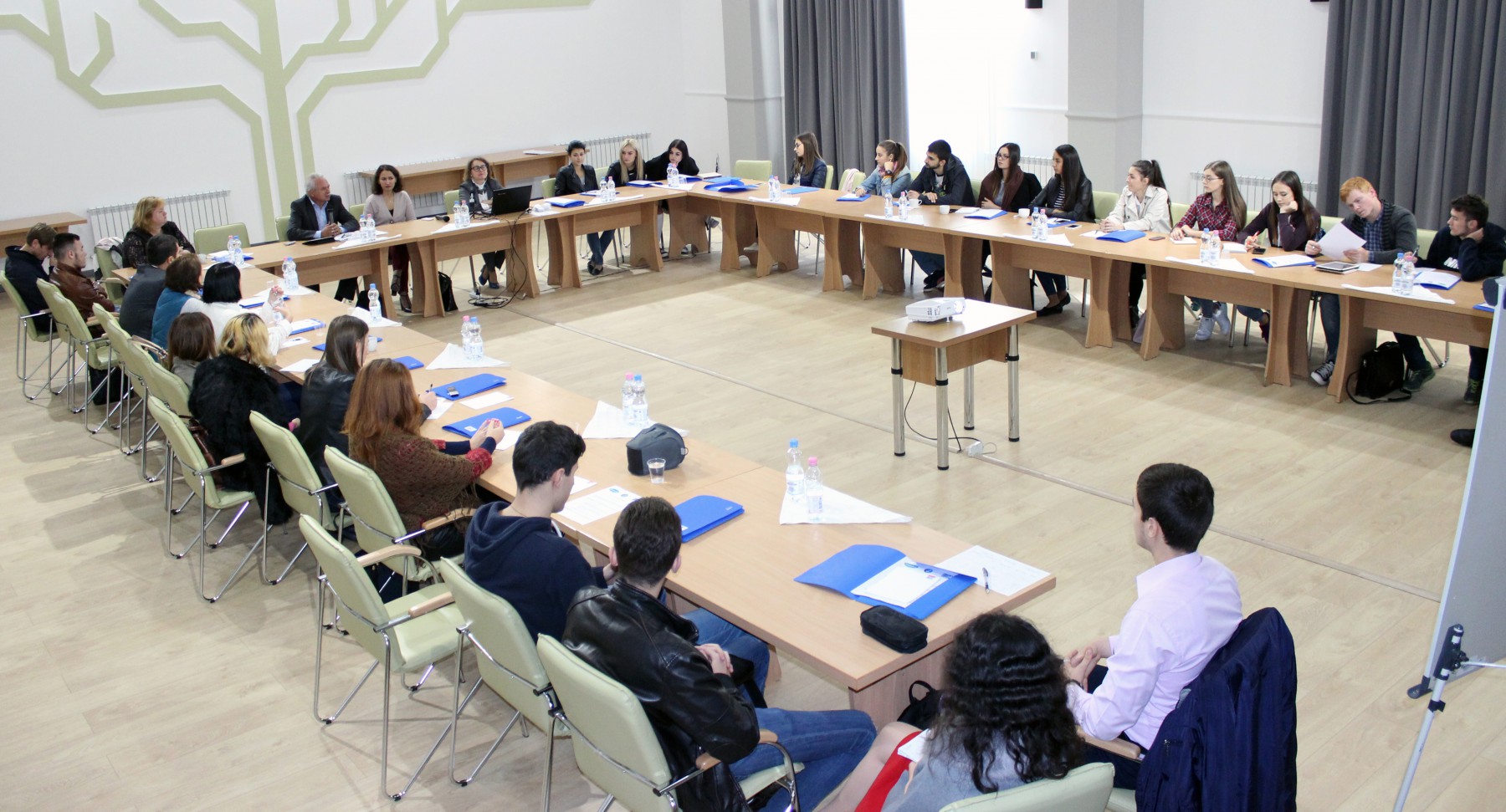Journalists got familiar with labour rights and decent work concept
Several journalists from the country participated on Friday, September 23, at the seminar “Media for Labour Rights”. The event was held within the project “Decent work – decent living”, organized by the Gender Centre in partnership with the Friedrich Ebert Stiftung Foundation (FES) and the National Trade Union Confederation of Moldova (CNSM).
The purpose of the seminar was to familiarize journalists with the concept of decent work, standards and strategies of decent work and minimum living standards, as well as with UN Agenda 2030 and the country program in this area. Also, the participants examined violations of employee rights and discrimination in employment.
Sergiu Sainciuc, vice-president of CNSM, said that the topics covered in the seminar are very sensitive and it is important for the media to be actively involved in the process of informing and elucidation of violations of labour rights. “Along with NGOs and trade unions, the media has a major role in social, economic and political life of the country, and all together may influence important processes in the society,” he opined.
Ana Mihailov, Program Coordinator of FES in Moldova, said that last year the Foundation launched a project to raise public awareness on violations that occur in the field of labour rights. “It is necessary to develop the knowledge of journalists, to know the rights and infringements being committed frequently in the workplace to address these issues in a competent manner. There are many abuses taking place at the enterprise level, starting with wage arrears, poor working conditions and social protection of workers. But there are many gaps in addressing those issues, the media is more interested in scandalous topics, ensuring a high rating and less in issues directly related to daily life of citizens,” she pointed out.
“We have very few clarification situations of discrimination in employment and population, most often, do not know the opportunities whereby they can access their rights. There are many cases where media would be of enormous help for ordinary citizens who really have a need for accessible information “, said Valentina Bodrug-Lungu, President of Gender Center.
In turn, Cornelia Cozonac, president of the Centre for Investigative Journalism, noted with regret that in the national press there are very few well-documented materials that would reveal labour problems.
“Within a campaign supported by the Friedrich Ebert Stiftung Foundation we have investigated several cases of serious violations of labour law. We can mention here the case of Mileştii Mici Mine, where people work 30 meters under the ground, under conditions of high humidity and shale gas, which affect workers. Moreover, they have large overdue wages and unpaid social contributions, despite of having been deducted from workers’ wages. We have many cases of this kind, but also cases when companies go bankrupt and people remain homeless in seeking justice and when they get in courts, the trials usually last very long. One of the last cases is the failure of the three banks, which left more than 3000 employees without jobs. It is surprising and unfortunate that such subjects do not reach the editorial agenda, while the media is the main source of information for citizens,” concluded Cozonac.
At the end of the activities of the seminar, the participants were awarded certificates of participation and information support on the covered topics.
Department of mass media and international relations



